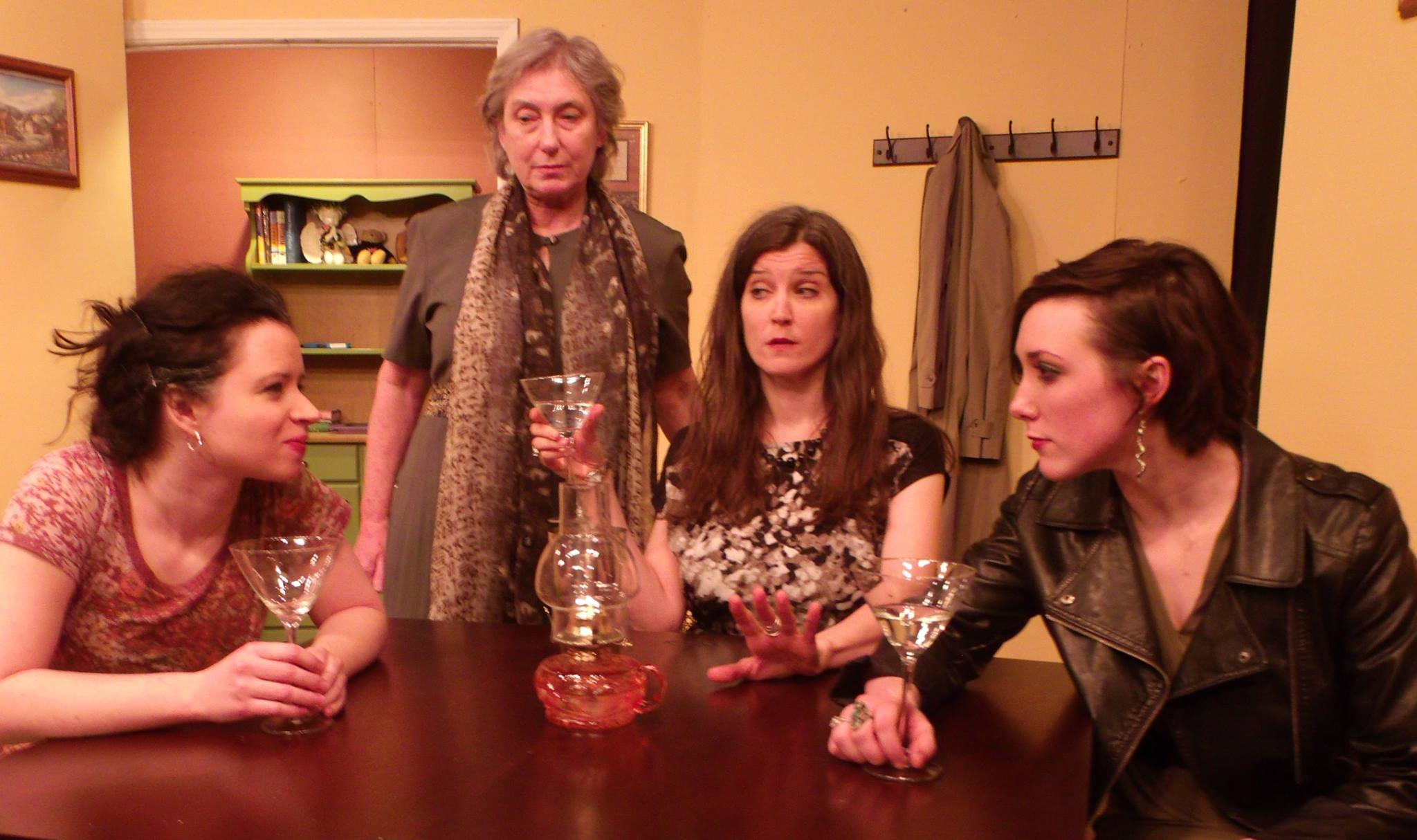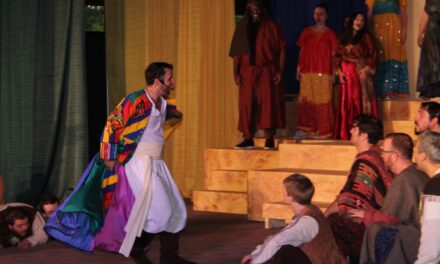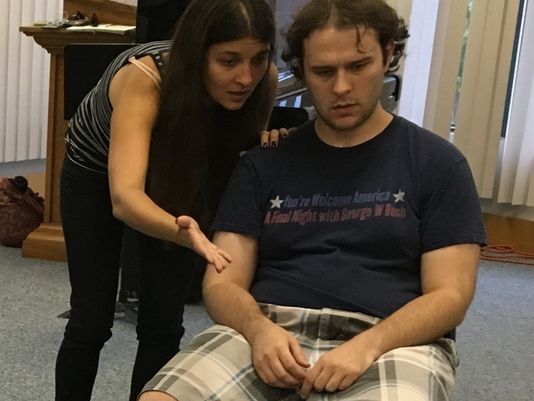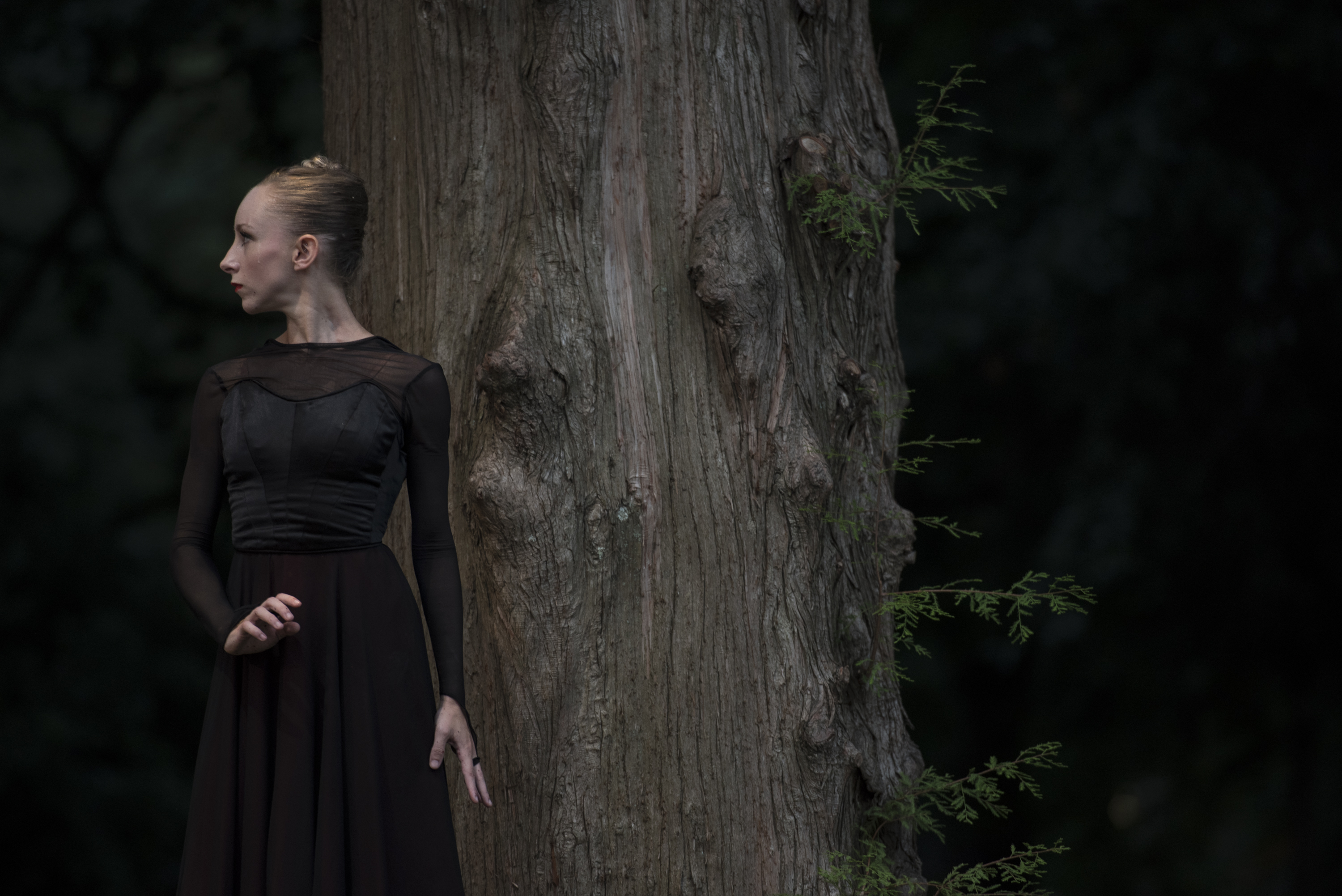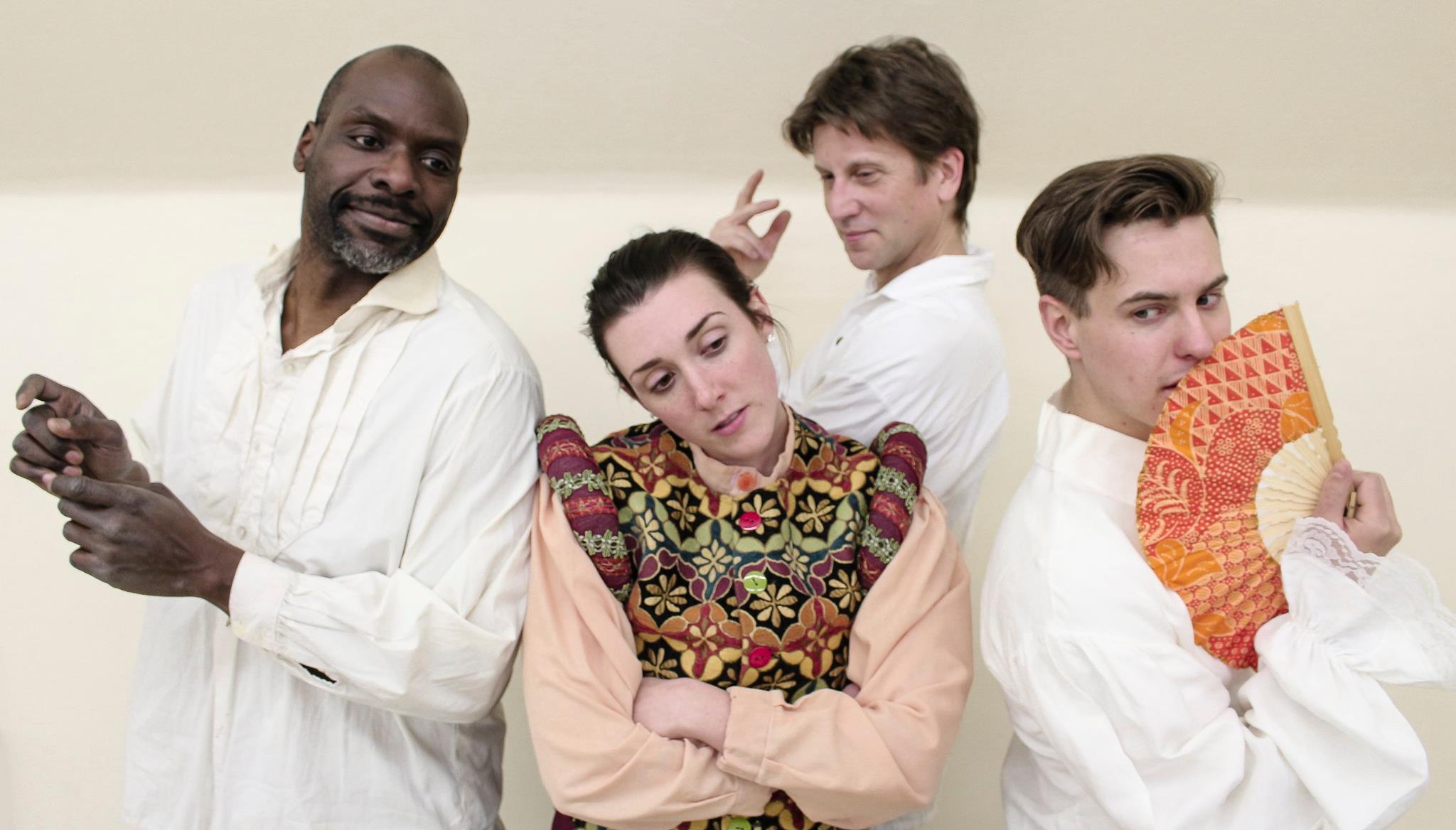Rachel White, Laurene Scalf, Amy Steiger & Victoria Reibel in
Rapture, Blister, Burn. Photo-The Bard’s Town
Rapture, Blister, Burn
By Gina Gionfriddo
Directed by Doug Schutte
A review by Keith Waits
Entire contents are copyright © 2014 Keith Waits. All rights reserved.
American society seems to be at a curious turning point of introspection. A generation after the social upheaval of the 1960’s we are caught in a cycle of reevaluation that takes a measure of the legacy of change. Gina Gionfriddo’s play addresses the status of modern-day feminism through the interactions of three generations of women.
Catherine Croll (Amy Steiger), Gwen Harper (Rachel White) and Don Harper (Doug Schutte) were university students together but now Gwen and Don are married with two kids while Catherine pursued a career as an academic and writer and never settled down. During a sabbatical in which she has returned home to spend time with her post-heart attack mother Alice (Laurene Scalf), Catherine teaches a history of feminism seminar in which Gwen and her baby-sitter Avery are the only students. As the contrast between Catherine and Gwen is sharply outlined, the history between Catherine, Gwen and Don is unearthed with life-altering effects.
The themes of character transference and the shifting foundation of feminist thought make for a heady text, and are, for the most part, engaging expressed in the story. It is a talky script grappling with many ideas that occasionally slows to a crawl to earnestly catalog the history necessary to delineate the premise. Gwen gave up her professional ambitions to marry Don, and be a “homemaker” and the feminist debate about the choice available for women and whether one is more satisfying than the other is given a thorough workout. The inclusion of a college-age female character with little or no awareness of the struggles for women that have come before helps define the contrast. In due time, she, as well as Catherine and Gwen, are given the opportunities to seek change in their lives.
I like the play very much, although the pace dragged a bit in the second act, and the ideas are not as fresh as one might hope. Yet there is wit enough to keep us entertained while we ponder the fluidity of identity for the women onstage. Opening night performances might have just missed the polish needed to really make this thing sing, but the foundations are true and worthy. Amy Steiger is well cast as Catherine, with the right dry but anxious academic quality. Doug Schutte made nice use of his easy-going demeanor to play the unambitious, pot-smoking Don. Rachel White brings nervous uncertainty to Gwen that seems appropriate, although the fact that she is clearly much younger than Steiger and Schutte distracts from the notion that they were students together.
Victoria Reibel brings so much energy, presence and moxie to Avery that she nearly steals the show, and one of the nice surprises in the script is how much control and influence it grants the character who is most cavalier about her feminism. In direct contrast, Laurene Scalf underplays and slyly slips in some gently impactful moments for Alice. She too wears her empowerment lightly, and it is worth noting that these two characters are the most at ease with themselves and fulfilled, after a fashion.
Rapture, Blister, Burn opens the 2014 season for The Bard’s Town, and further emphasizes their knack for finding recent American plays of quality and intelligence that we might not otherwise witness. While Theatre [502] gets deserved kudos for mounting productions of important new work, we should recognize that they are not the only company bringing first productions of contemporary American plays to Louisville.
Rapture, Blister, Burn
March 20-30, 2014 @ 7:30pm
The Bards Town Theater
1801 Bardstown Road
Louisville, KY 40205
Thebardstown.org

